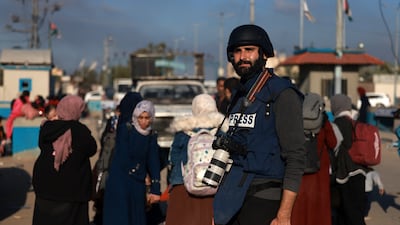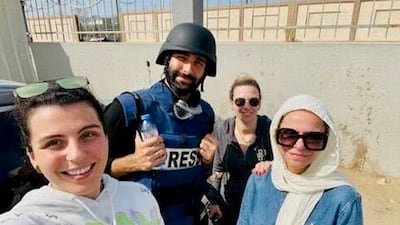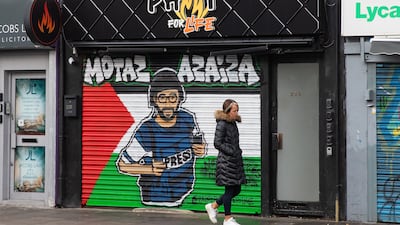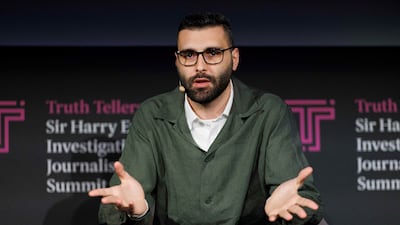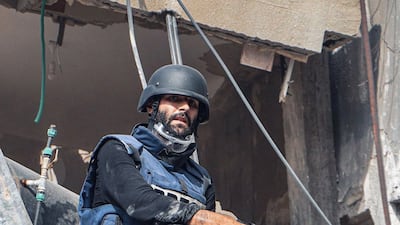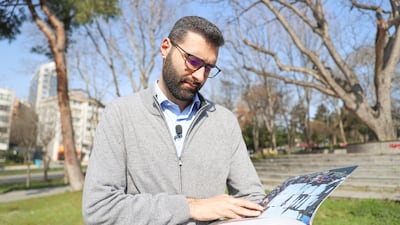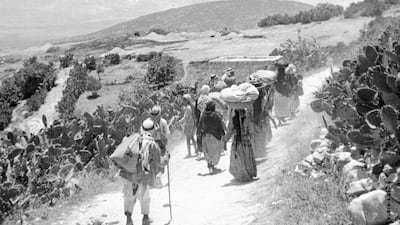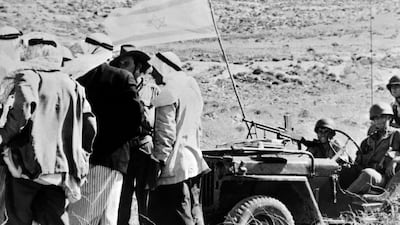Palestinian war photographer Motaz Azaiza said he had gone from "beauty maker to taking pictures of destruction" in a tearful speech in London at an event marking the 1948 Nakba.
“I used to be the photographer of the beauty of Gaza," Azaiza told a packed hall on Wednesday. "I was always fighting to make beautiful pictures of my home town."
He became known on social media for his daily reporting of the war, and left Gaza in February for treatment.
“I lost the people that I captured in my pictures, lots of places I used to hang out there and take pictures there, I lost my access to my city, I lost the days I spent in my home,” Azaiza said.
He recalled how, before the war, he would gather stories of the Nakba from those in Gaza's refugee camps who remembered it, and wish he had been there at the time to photograph it.
'“The second Nakba I’ve been old enough to witness. There are times I wish I didn’t,” Azaiza said of the war in Gaza.
“I was a beauty maker, and now I’m a photographer of destruction. I thank God for one thing, that he used me in a good way, to serve my home and my country. I wish the day will come to reach a free Palestine."
Hundreds had gathered at Westminster Central Hall, outside the Houses of Parliament, to hear stories from poets and writers about the 1948 Nakba – in which hundreds of thousands of Palestinians were driven out after the establishment of the state of Israel – and voices from the war in Gaza.
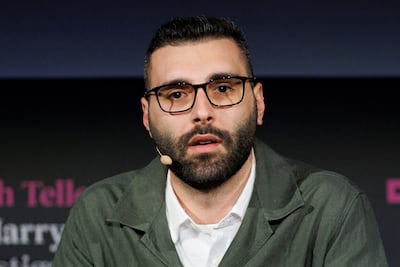
Many in the audience were British Palestinians, descendants of those displaced in 1948, who came wearing traditional embroidered fabrics and their keffiyehs across their shoulders.
They were joined by Arab diplomats and UK politicians at the event, which was hosted by the Palestinian Mission to the UK and the Council of Arab Ambassadors.
Singer Rola Azar sang songs in a code language that mothers created to communicate with their sons outside Israeli prisons.
Writers gave readings on Gaza written by Palestinians who currently live there. Oud player Adnan Joubran described Palestinians as "survivors" and played music for "healing".
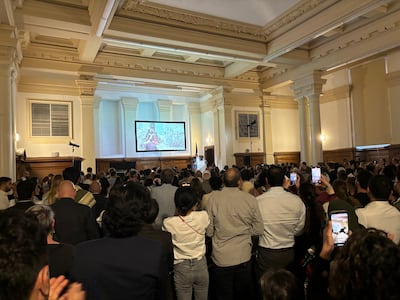
Aymen Odeh, the Israeli politician of Palestinian origin, praised the large turnout at the event.
Mr Odeh said it was a call to the British government to recognise its historical responsibility for the Nakba and bring an end to the Israeli military campaign in Gaza, and make the two-state solution a reality.
“It is a resounding ethical declaration against the war on Gaza, and for the end of injustice against the Palestinian people and the establishment of a Palestinian state,” he said.
“There is only one way to achieve democracy and security and justice and live in peace.
“Every child, including Palestinian children, has the right to live in safety of peace within a sovereign, democratic state.
“The only solution is to respect the national rights of both peoples and to live in peace, stability and security.
“Some are stuck in a culture of death, but we insist on promoting a culture of dignified life for all brothers and sisters … standing on the right side of history."
The Israeli government knew of the awakening “conscience” of younger generations of Jewish Israelis, and sought to suppress lessons of the Nakba for that reason.
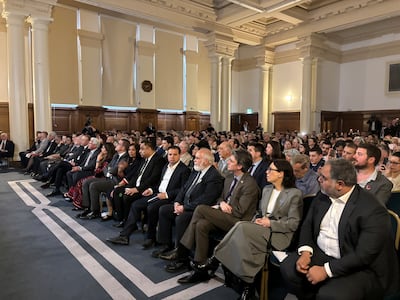
Yet the stories of the Nakba had lived on among Palestinians, who would continue to tell them over generations.
“We know all the stories of the Nakba against our people from our parents,” Mr Odeh said.
Israel was revealing its true intentions behind the 1948 Nakba with the Gaza war, said Ahmed Aboul Gheit, Secretary General of the Arab League, which he described as “ethnic cleansing”.
Dr Husam Zomlot, Palestine’s envoy to the UK, recalled his childhood in a refugee camp in Gaza, and how he quarrelled with his grandfather, who escaped the Nakba.
“I always questioned my grandfather's decision to leave in 1948," Dr Zomlot said.
"'Why?' I would ask him angrily at times. We had homes, we had farms. Life was different.
“I was resentful for years, but now seven months into a genocide that has killed and maimed more than 100,000 Palestinian people so far, and as Israeli tanks roll into Rafah, the city of my birth, I not only understand my late grandfather, I ask his forgiveness for not realising soon enough."
Sir Alan Duncan, a former Conservative MP, condemned the Israeli settlements in the West Bank and called on the UN to recognise the state of Palestine.
“International law is international law, you cannot just pick and choose the rules you wish to obey and ignore the ones you don't,” Sir Alan said.
“Israel cannot call itself a democracy unless it behaves like one. Democracy is not just about elections, it's about everything else that goes with them.
"Democracy does not permit a majority group to systematically oppress a minority."
Another witness to the war in Gaza was British-Palestinian reconstructive surgeon Dr Ghassan Abu Sittah, who spent the first two months of the war there treating the injured,.
Dr Abu Sitta received a standing ovation as he came on stage to talk about Israeli attacks on the Palestinian healthcare system.
The Palestine Red Crescent Society, he said, was one of the first medical organisations to become part of a liberation movement, thanks to the resilience of its Palestinian doctors.
“People identified the provision of health, the provision of life, as part of their resistance to the world of death, that Zionism and its erasure of the Palestinians wanted,” Dr Abu Sittah said.
